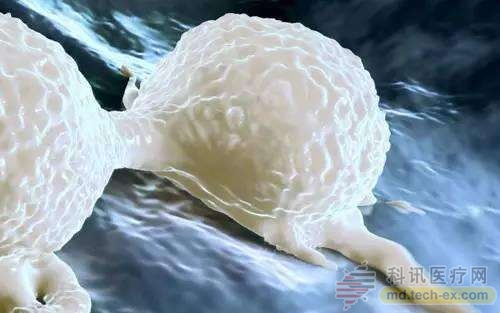Release date: 2017-04-25
According to the Chinese Academy of Sciences, the Center for Strong Magnetic Fields of the Chinese Academy of Sciences has recently established the world's largest high-throughput cell screening library based on cancer kinase targets. The cell bank contains nearly 70 cancer kinase targets, with more than 150 cell types, covering almost all of the kinase and kinase mutant cells currently known to be involved in tumorigenesis. The completion of the cell bank has filled the gap in such a detection system in the field of new drug creation in China, and will provide strong support for the development of new anti-tumor drugs. 
Wang Wenchao, a researcher at the Cell Screening Library and a researcher at the Strong Magnetic Field Science Center of the Chinese Academy of Sciences, said: "This technology system simulates clinical cancer patients at the cellular level, and is therefore called a 'patient in a test tube'." The study found that Many tumors are caused by abnormal activation of certain growth-related "kinases", and inhibitors against these mutant kinases can effectively inhibit kinase activity and inhibit cancer cells. However, the confirmation of different tumor type kinases and the time period of drug screening are long, and the kinase may be mutated due to clinical use, resulting in drug resistance.
In order to solve this problem, the Liu Qingsong pharmacology team of the Strong Magnetic Field Science Center of the Chinese Academy of Sciences has used mouse cells as the original template for more than 4 years, using genetic engineering methods to construct only the cancer-related kinase targets that are common in clinical practice. A large cancer cell pool of cells that is dependent on the growth of the target gene.
This cell bank can not only detect the "strength" of potential drugs, that is, whether the hitting activity of the designed target can inhibit the growth of tumor cells; it can also detect its "accuracy", that is, target selectivity, to see if it can Accurately find the kinase without harming other cells, that is, predicting the possible side effects of the drug.
In addition, Liu Qingsong's research group has also built a high-throughput drug screening and testing technology platform with anti-tumor combination drug screening as the main research task. Using automated operating system, it can complete screening tests of 10,000 drug precursors every day. In cooperation with this, the research team also independently developed the first tumor precision treatment technology system (HDGS) that combines high-throughput targeted gene sequencing technology with high-throughput in vitro drug sensitivity detection technology, and its core is to utilize high-throughput. The drug screening method is to in vitro culture and high-throughput drug sensitivity detection of primary cancer cells of tumor patients, and to maximize the screening of available drugs for tumor patients. At the same time, the tumor-driven genes and pathogenic genes in tumor patients are detected. By comprehensively evaluating the results of gene sequencing and in vitro susceptibility testing, a precise drug-specific regimen for individual patients is proposed to achieve the goal of personalized and precise medication.
Source: Guangming Daily
Disposable Consumables,disposable surgical consumables,disposable hospital supplies,disposable medical supplies
taicang hexiang packaging material co.,ltd , https://www.medpackhexiang.com